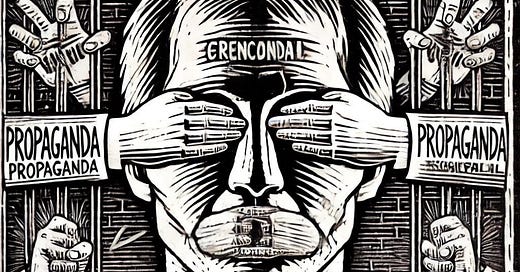The U.S. government has attempted to ban TikTok for a variety of reasons, primarily revolving around national security, data privacy, and concerns about the platform’s ties to the Chinese government. The real reason is that U.S govt is controlled by tech oligarchs who don’t want to empower common people so that they can make informed decisions. U.S government didn’t want people to know why genocidal regime of Israel was committing Genocide in Palestine.
TikTok has played a unique role in shaping global discourse on social and political issues, including its critical contribution to raising awareness about Palestinian suffering. Unlike other platforms such as Facebook, Instagram, and Twitter, which have faced allegations of suppressing or censoring pro-Palestinian content, TikTok has provided a relatively open space for activists to share their stories, organize campaigns, and challenge mainstream narratives.
During Israel’s brazen genocidal campaign in Gaza and incremental genocide in the West Bank, TikTok became instrumental in sharing uncensored firsthand accounts, videos, and stories directly from Palestinians. These posts often went viral, exposing global audiences to the human impact of the conflict in ways that traditional media or other platforms rarely do. While platforms like Facebook and Instagram were busy algorithmically suppressing content related to Palestinian struggles or flagging posts under vague community guidelines, TikTok users reported fewer such restrictions. This enabled the dissemination of critical information, countering media bias and ensuring that the voices of those affected reached millions worldwide.
TikTok’s format, with its short, engaging videos, allowed young activists to creatively present historical and political contexts, educate others about the situation, and mobilize global support for Palestinian rights. The platform bridged generational and cultural divides, empowering a new wave of digital activism.
TikTok’s format, with its short, engaging videos, allowed young activists to creatively present historical and political contexts, educate others about the situation, and mobilize global support for Palestinian rights. The platform bridged generational and cultural divides, empowering a new wave of digital activism.
By attempting to ban TikTok, the U.S. government was trying to silence a powerful tool for social justice advocacy, where videos of Israel’s war crimes were available for everyone to see. This ban disproportionately affects communities who were advocating for Palestinian rights, and have relied on the platform to share unfiltered content, challenging western media bias, which is propaganda tool controlled by those with “deep pockets”.
The U.S. frequently champions freedom of expression and democracy, yet banning TikTok undermines these principles. Many see it as hypocritical, particularly when TikTok has provided a platform for narratives that challenge Western-centric views of global issues, including the Israeli genocide of Palestinians.
Unlike heavily monetized and politically influenced platforms like Meta’s Facebook and Instagram, TikTok has, in many instances, allowed organic content to thrive. Banning the platform will diminish the diversity of voices and narratives that enrich global conversations, particularly on issues such as Palestine.
A ban should be seen as aligning with structural biases in the U.S., which often marginalize pro-Palestinian advocacy. By removing a platform that has empowered such voices, the U.S government reinforces our belief that it is complicit in suppressing dissenting viewpoints, especially Palestinian voices.
The decision to ban TikTok not only risks stifling free expression but also undermines its critical role in amplifying voices from underrepresented and oppressed communities, such as Palestinians. TikTok’s ability to bypass mainstream media biases and censorship has made it a vital tool for social justice advocacy.
Activsits around the globe should prioritize to find ways and means to amplify Palestinian voices and Palestinian suffering, despite structural biases and censorship that exist against Palestine. Our commitment to prevent Israeli genocide of Palestinians and ensuring that platforms like TikTok continue to empower global activism and discourse should always be our priority.
In Our Thousands, In Our Millions, We Are All Palestinians.





